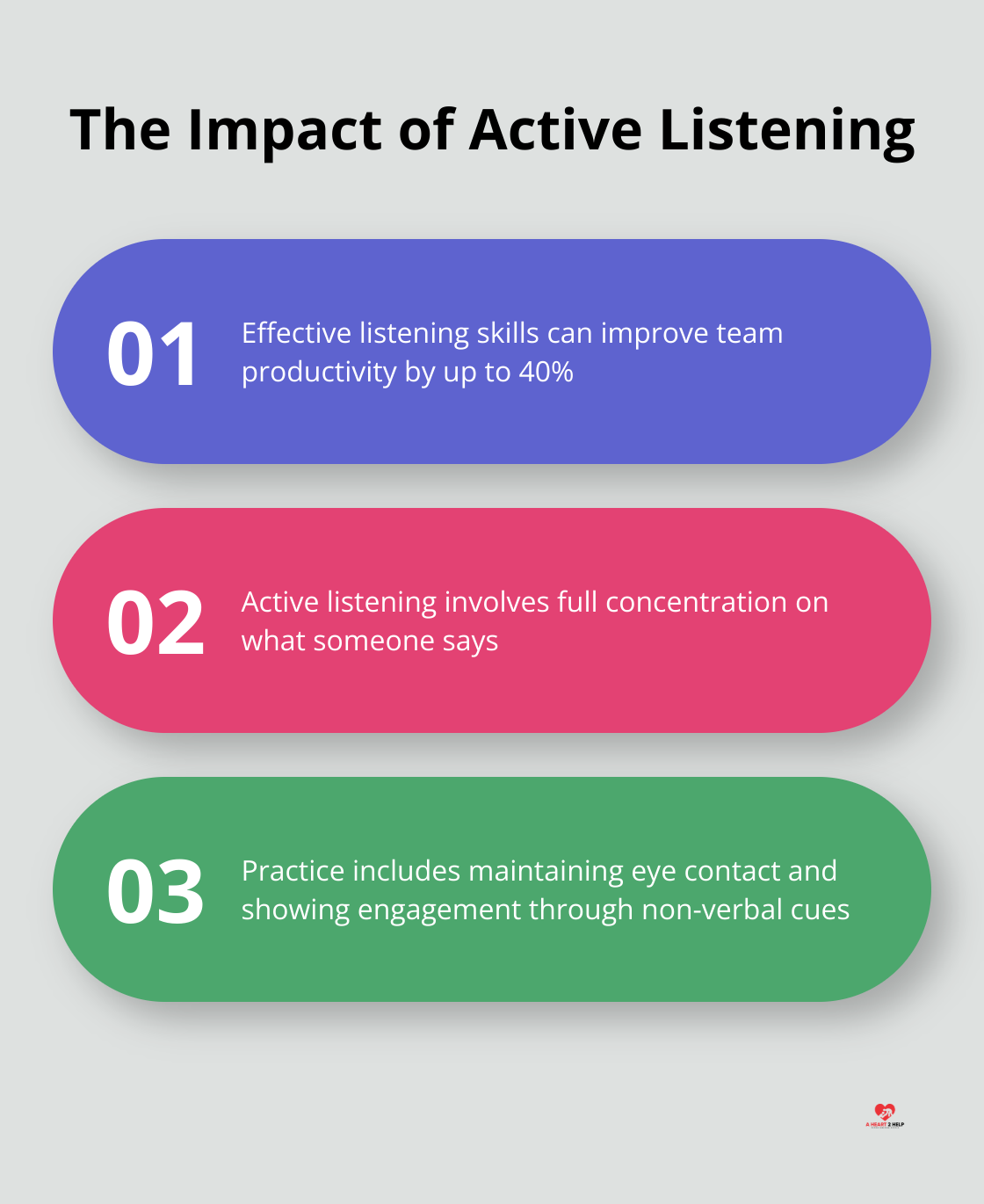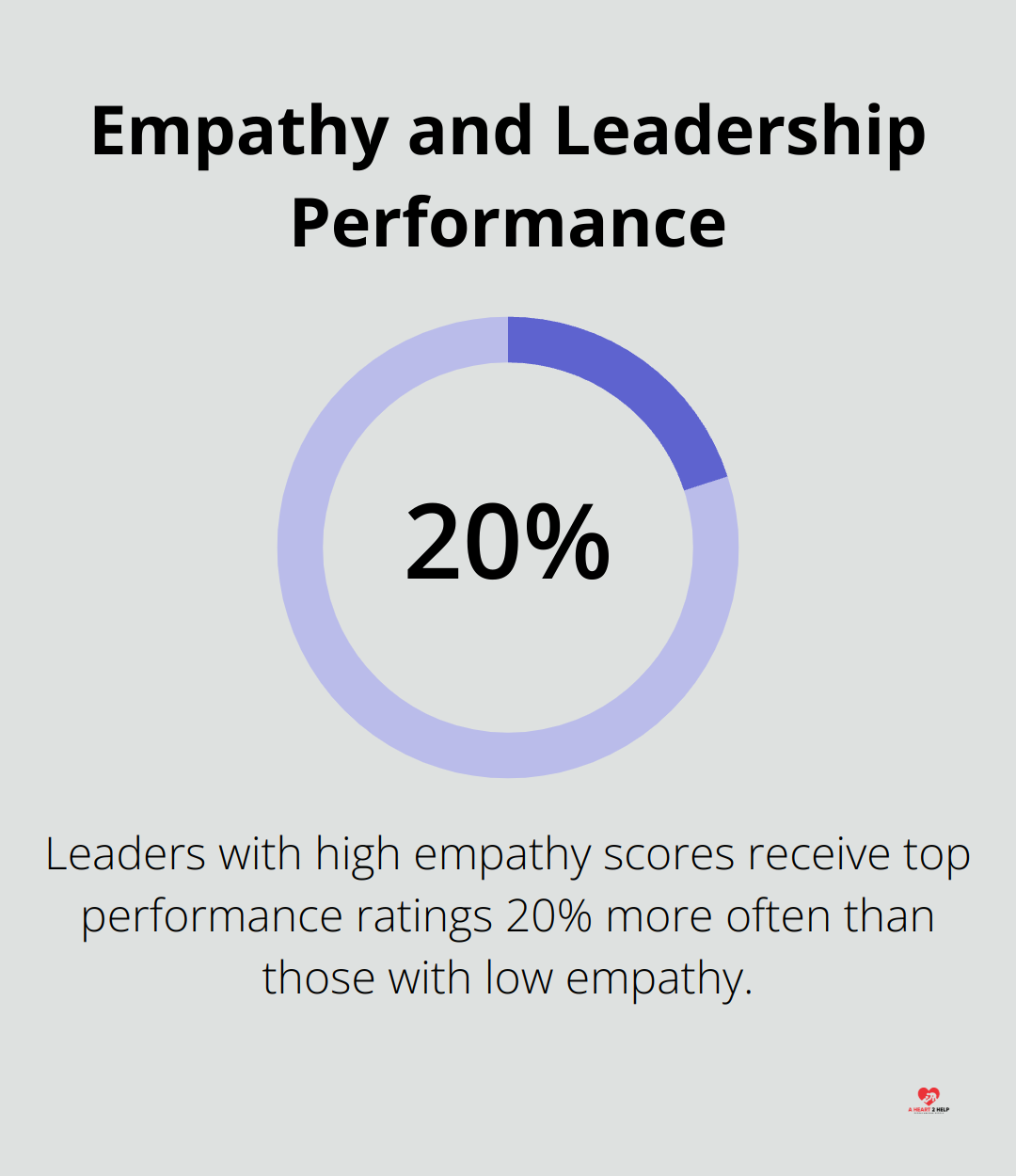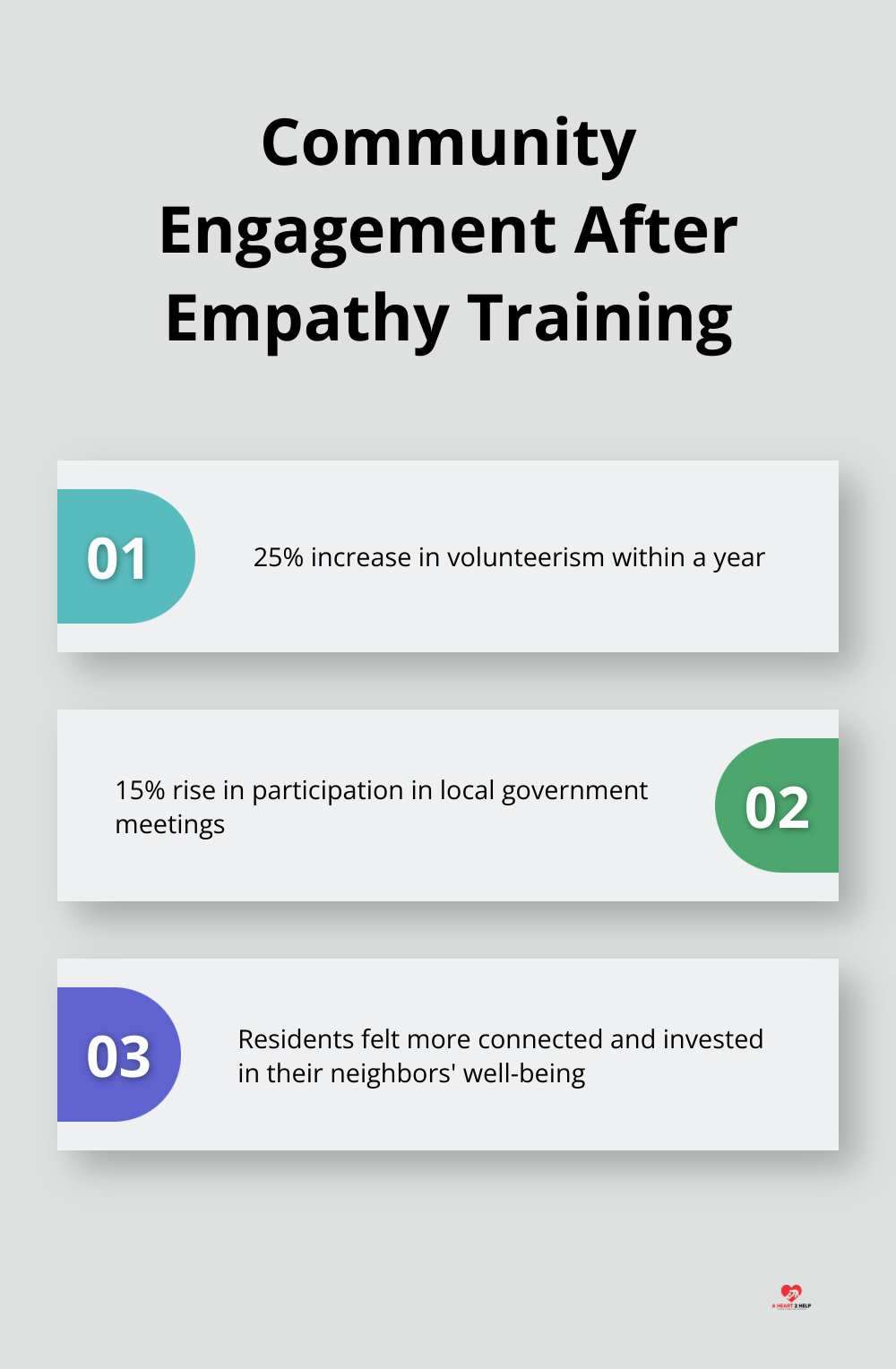Empathy is a powerful force that can reshape communities. At A Heart 2 Help, we’ve seen firsthand how empathy training can bridge divides and foster understanding.
This blog post explores the science behind empathy, effective training techniques, and the profound impact it can have on social cohesion. We’ll show you how empathy training can transform your community, one connection at a time.
What Drives Empathy in Our Brains?
The Essence of Empathy
Empathy transcends mere emotion; it represents a complex neurological process that shapes our social interactions. At its core, empathy enables us to understand and share the feelings of others. This capacity forms the foundation for strong communities and fosters deep social connections.
The Brain’s Empathy Circuit
Neuroscientists have pinpointed specific brain regions involved in empathy. The anterior insular cortex and anterior cingulate cortex play pivotal roles in processing emotions and social information. When we observe someone in pain, these areas activate, mirroring the neural activity of the person directly experiencing the pain.
A study revealed that individuals with damage to these brain regions often struggle with empathy and social interactions. This research underscores the biological basis of our ability to connect with others emotionally.
From Feeling to Action
Empathy extends beyond feeling; it prompts action. The prefrontal cortex, responsible for decision-making and planning, collaborates with our emotion centers to translate empathetic feelings into helpful behaviors. This explains why empathy training often focuses on both emotional recognition and practical skills for supporting others.
Cultivating Empathy Through Experience
While some individuals appear naturally more empathetic, research demonstrates that empathy can develop and strengthen over time. A study by Klimecki et al. found that compassion training increased positive affective experiences, even in response to witnessing others’ suffering.
This neuroplasticity (the brain’s ability to form new neural connections) indicates that empathy training can produce lasting effects on how we perceive and interact with others. Programs that combine emotional awareness exercises with real-world practice in perspective-taking can effectively rewire our brains for greater empathy.
The Power of Regular Practice
Understanding the neuroscience behind empathy provides a powerful tool for creating more compassionate communities. As we continue to explore the brain’s empathy circuits, we unlock new ways to nurture this essential human quality and build stronger, more supportive neighborhoods.
The science clearly shows that regular practice strengthens our “empathy muscles.” Apps and programs that encourage frequent, meaningful interactions (such as A Heart 2 Help) can play a significant role in fostering community-wide increases in empathetic capacity. These platforms not only match people who need help with those who can provide it but also create opportunities for users to exercise their empathy skills regularly.
As we move forward, let’s explore the specific techniques and programs that can harness this neurological potential and transform it into tangible community benefits.
How Can We Train Empathy Effectively?
Empathy training transforms theoretical concepts into practical approaches for building stronger, more connected communities. Targeted empathy exercises can revolutionize interactions and foster deeper understanding among neighbors.
The Power of Active Listening
Active listening stands as one of the most effective techniques for developing empathy. This practice involves full concentration on what someone says, rather than passive hearing. A study by the International Listening Association found that effective listening skills can improve team productivity by as much as 40%.

To practice active listening, try this exercise:
- Pair up with a friend or neighbor
- Take turns sharing a personal story for 3 minutes
- The listener remains silent, maintains eye contact, and shows engagement through non-verbal cues
- Afterward, the listener summarizes what they heard, focusing on the emotions conveyed
This simple yet powerful exercise can significantly enhance your ability to truly understand others’ perspectives.
Stepping Into Someone Else’s Shoes
Perspective-taking activities prove crucial for developing cognitive empathy. The “Day in the Life” exercise offers an effective method. Spend a day imagining you live the life of someone very different from you (perhaps an elderly neighbor, a single parent, or a recent immigrant). Document your imagined experiences, challenges, and emotions. This exercise provides profound insights into the daily realities of others, fostering a more empathetic community mindset.
Real-World Empathy Practice
Role-playing scenarios offer a safe space to practice empathetic responses in challenging situations. Community groups can organize workshops where participants act out common conflicts or misunderstandings. This hands-on approach allows people to experience different perspectives and practice empathetic communication in a supportive environment.
Mindfulness for Empathy
Mindfulness and meditation practices can significantly enhance our capacity for empathy.
Try this simple mindfulness exercise:
- Spend 5 minutes each day focusing on your breath
- When your mind wanders, gently bring it back to your breathing
This practice enhances self-awareness and emotional regulation (both key components of empathy).
For those looking to incorporate empathy training into their daily lives, apps like A Heart 2 Help provide regular opportunities to practice empathy through real-world helping scenarios. Users can consistently exercise their empathy skills in meaningful ways by matching those in need with willing helpers.
Empathy training requires consistent practice and real-world application to develop lasting empathetic skills. As we move forward, we’ll examine the tangible impacts these practices can have on community dynamics and social cohesion.
How Empathy Training Transforms Communities
Breaking Down Communication Barriers
Empathy training enhances communication within communities. The Center for Creative Leadership found that leaders with high empathy scores received top performance ratings 20% more often than those with low empathy. This improvement in leadership communication creates a more open and understanding community atmosphere.

Communities that implement empathy training often see a reduction in conflicts. A neighborhood in Chicago introduced empathy workshops and experienced a 30% decrease in reported disputes over six months. Residents felt more heard and understood, even during disagreements.
Building Trust and Social Cohesion
Trust forms the bedrock of strong communities, and empathy training plays a key role in its development. The World Economic Forum reports that high-trust organizations see 50% higher productivity compared to low-trust ones. This principle extends to communities as well.
A small town in Oregon implemented a community-wide empathy program. Within a year, they saw a 25% increase in volunteerism and a 15% rise in participation in local government meetings. Residents attributed this to feeling more connected and invested in their neighbors’ well-being.

Supporting Vulnerable Populations
Empathy training impacts how communities support their most vulnerable members. A study in the Journal of Social Work Education found that social workers who underwent intensive empathy training were 40% more effective in client outcomes.
Empathy training shows that empathic expression is a teachable communication skill, and cognitive empathy can significantly increase. This can lead to improved care and support for vulnerable populations, such as the elderly in senior care facilities.
Fostering Inclusive Environments
Empathy training helps create more inclusive communities. It encourages people to consider perspectives different from their own, leading to reduced prejudice and discrimination. A study by the University of Wisconsin-Madison found that empathy interventions reduced implicit bias by 10% in participating communities.
In practice, a diverse neighborhood in New York City implemented an empathy-based cultural exchange program. After six months, residents reported a 40% increase in positive interactions with people from different cultural backgrounds.
Enhancing Community Problem-Solving
Communities with strong empathy skills solve problems more effectively. They consider multiple viewpoints and find solutions that benefit the most people. A town in Arizona used empathy-based decision-making in their city council (resulting in a 30% increase in resident satisfaction with local policies).
Empathy training transforms communities by improving communication, building trust, enhancing support for those in need, fostering inclusivity, and boosting problem-solving capabilities. These skills create stronger, more resilient, and more compassionate communities. The effects of empathy extend far beyond individual interactions, shaping the very fabric of our social structures.
Final Thoughts
Empathy training transforms communities by fostering understanding, trust, and cooperation among diverse individuals. It breaks down communication barriers, enhances social cohesion, and improves support for vulnerable populations. Empathy-driven approaches lead to more inclusive environments and innovative problem-solving at the community level.
We urge you to explore empathy training opportunities in your area or implement programs within your organizations. Every step towards greater empathy contributes to a more connected and supportive community. The benefits of empathy extend beyond individual interactions, shaping the very fabric of our social structures.
A Heart 2 Help offers a practical way to exercise empathy skills through real-world helping scenarios. This innovative care-app connects those in need with compassionate individuals ready to offer support (from rides to companionship). As we cultivate empathy individually and collectively, we pave the way for more understanding, inclusive, and thriving communities.
